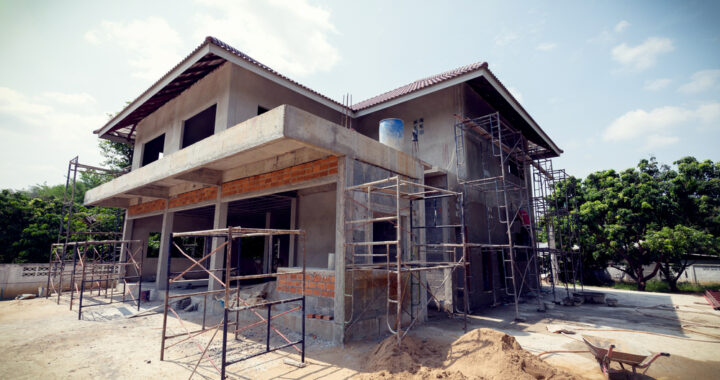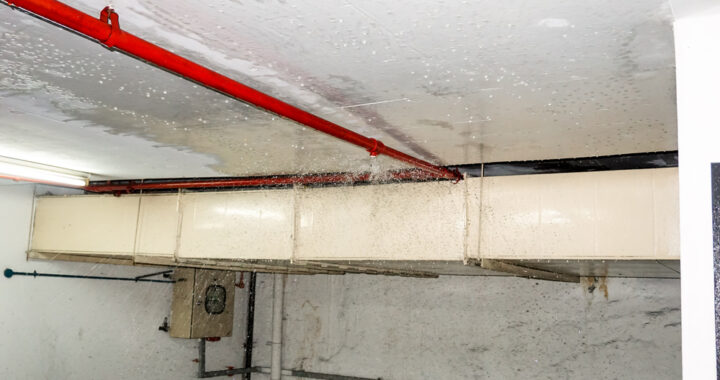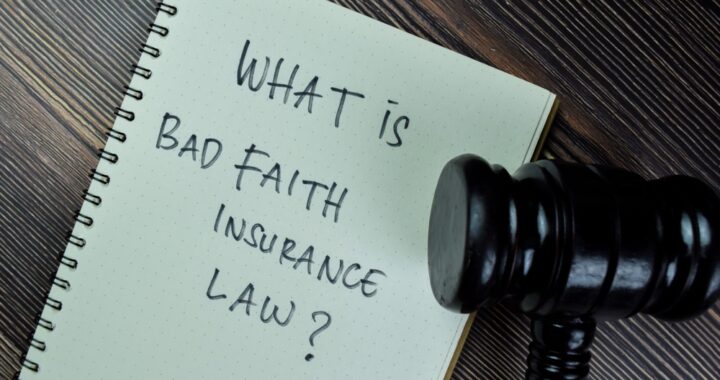A new insurance coverage opinion dealing with a commercial general liability’s (CGL) duty to defend involved exclusions commonly known as the (j)(6) and (j)(7) property damage exclusions (and in certain policies known as the (j)(5) and (j)(6) exclusions). These are the exclusions that apply during ongoing operations. Exclusion (l), or the “your work” exclusion, applies post-completion, i.e., it is an exclusion for “property damage” to “your work” included in the “products-completed operations hazard.”
Exclusions (j)(6) and (j)(7) in the policy at-issue exclude coverage for property damage to:
(j)(6) That particular part of real property on which any insured or any contractors or subcontractors working directly or indirectly on your behalf are performing operations, if the “property damage” arises out of those operations;
(j)(7) That particular part of any property that must be restored, repaired or replaced because “your work” was incorrectly performed on it.
In this coverage dispute, Southern-Owners Ins. Co. v. MAC Contractors of Florida, LLC, 2023 WL 2709389 (M.D.Fla. 2023), a CGL carrier denied coverage and the duty to defend in a residential construction defect lawsuit. The underlying dispute pertained to a contractor (insured) not finishing its construction due to a dispute with the homeowners. The homeowners claimed the work was defective and alleged various defects:
“[r]epair loose, broken or chipped pavers in driveway and walkways and install edge restraints”; “[r]epair underside of lap siding – inconsistent paint finish at bottom of boards”; “[r]epair chatter marks on T&G ceilings”; “repair damage to all exterior doors” and “[r]epair all pocket doors”; “[r]eplace damaged top stair tread”; “[r]emedy damage to hardwood floors, includ[ing] damage resulting from use of blue tape and dirt”; “[r]epair metal roof dents, scratches and hems”; “[c]lean wall and ceiling paint on cabinets”; “[r]emove paint spots on baseboards throughout the house”; “[r]emedy scratches in granite”; and “[p]atch and paint all holes in ceilings and walls and twin holes in exterior hardi plank.”
The contractor resolved the underlying lawsuit with the homeowners, but the issue was whether the carrier should have defended the contractor in this underlying lawsuit and incurred the defense fees and costs. If so, the carrier would need to reimburse its insured. There are times where the main focus of the coverage dispute is on the duty to defend and less about the duty to indemnify. The duty to defend is a critical duty and should NOT be overlooked or cast aside.
Initially, the trial court granted summary judgment in favor of the insurer based on the “your work” exclusion in exclusion (l). However, this was reversed by the Eleventh Circuit finding that the “underlying complaint could fairly be construed to allege damages that fell outside the exclusion.” Southern-Owners Ins. Co., supra, at *2.
On remand, the trial court again entered summary judgment for the insurer finding that the underlying complaint “did not allege ‘property damage’ within the meaning of the CGL policy…did not allege any damage beyond the faulty workmanship or defective work….” Id. The Eleventh Circuit again reversed finding “that the underlying operative complaint can be fairly construed to allege ‘property damage’ within the meaning of the CGL policy and Florida law.” Id. The Eleventh Circuit also previously held that, regardless, the completion-operations hazard exclusion would also NOT eliminate the carrier’s duty to defend. Id. “The Eleventh Circuit held: ‘Construing the Your Work exclusion narrowly and resolving all doubts in favor of [the contractor], we conclude that the underlying allegations can fairly be construed to allege damage during ongoing operations.” Id. at *4.
So, back to the trial court on more summary judgments. Is the third time the charm here for the insurer? No! The trial court, this time, granted summary judgment for the insured finding the carrier had a duty to defend.
Since it was previously held that the completed-operations hazard exclusion would not eliminate the carrier’s duty to defend, the primary focus was on the (j)(6) and (j)(7) exclusions. The carrier’s fundamental argument was that the phrase, “That particular part of” (as underlined above) refers to the entire project. The contractor argued these exclusions don’t apply “to property damage that occurred during operations on the property as a whole ‘but at a moment in time whether neither [the contractor] nor its subcontractors specifically worked on’ the ‘particular part of [the] property’ that was damaged or must be restored, repaired, or replaced.’” Southern-Owners Ins. Co., supra, at *2.
As to the (j)(6) and (j)(7) exclusions, the trial court reasoned (relying on various case citations):
[I]f a subcontractor is hired to install a project component and, by virtue of his faulty workmanship, installs a defective component, then the cost to repair the defective component is not property damage. On the other hand, a claim for the costs of repairing damage to other property caused by defective work does qualify as a claim for property damage.
Property damage occurs when the damage happens, not when the damage is discovered or discoverable. And where the underlying allegations, even though silent as to the timing of damages, can be reasonably construed to allege property damage that occurred during the policy period, there is potential for coverage.
The[se] exclusions are triggered only when the faulty work and the damage are to the same part of the property. The potential for coverage is triggered when an occurrence results in property damage. There is not requirement that the damages manifest themselves during the policy period. Here, although the underlying allegations are silent as to the timing of the damages, the allegations can be reasonably construed to allege damages that occurred during ongoing operations. Under paragraph j7, property damage to that particular part of any property that must be restored, repaired or replaced because your work was incorrectly performed on it is excluded from coverage. Paragraph 7 does not apply to property damage included in the products-completed operations hazard, which excludes work that has not yet been completed or abandoned.
Southern-Owners Ins. Co., supra, at *5-6 (internal citations and quotations omitted).
Please contact David Adelstein at dadelstein@gmail.com or (954) 361-4720 if you have questions or would like more information regarding this article. You can follow David Adelstein on Twitter @DavidAdelstein1.





 A professional services exclusion in a commercial general liability policy means something. It’s an exclusion an insurer will rely on to avoid insurance coverage based on “professional services” performed or rendered by the insured. Don’t take it from me. Take it from the recent opinion in Colony Insurance Company v. Coastal Construction Management, LLC, 2022 WL 16636697 (M.D.Fla. 2022) where the trial court granted a commercial general liability insurer’s motion for judgment on the pleadings based on the professional services exclusion.
A professional services exclusion in a commercial general liability policy means something. It’s an exclusion an insurer will rely on to avoid insurance coverage based on “professional services” performed or rendered by the insured. Don’t take it from me. Take it from the recent opinion in Colony Insurance Company v. Coastal Construction Management, LLC, 2022 WL 16636697 (M.D.Fla. 2022) where the trial court granted a commercial general liability insurer’s motion for judgment on the pleadings based on the professional services exclusion. Notice, notice, notice
Notice, notice, notice In one of Florida’s first appellate opinions dealing with business interruption losses and COVID-19, the appellate court found COVID-19 was not covered under the terms of the commercial property insurance policy to cover business interruption losses. In this case, a restaurant/bar suffered losses due to emergency measures imposed by Miami Dade due to COVID-19. Such emergency measures restricted the occupancy of restaurant/bars and undeniably resulted in business interruption. Occupancy and patrons are the lifeline of restaurant/bars. So why weren’t business interruption losses covered? Because there was no direct physical loss of or damage to the property at the restaurant/bar. The appellate court, affirming the trial court, explained direct physical loss of or damage to the property means there needs to be actual tangible alteration to property. COVID-19 did not cause actual tangible alteration to property which caused the restaurant/bar to suffer business interruption losses. Moreover, any COVID-19 particles that got on property could be cleaned. The analogy the appellate court provided, as cited
In one of Florida’s first appellate opinions dealing with business interruption losses and COVID-19, the appellate court found COVID-19 was not covered under the terms of the commercial property insurance policy to cover business interruption losses. In this case, a restaurant/bar suffered losses due to emergency measures imposed by Miami Dade due to COVID-19. Such emergency measures restricted the occupancy of restaurant/bars and undeniably resulted in business interruption. Occupancy and patrons are the lifeline of restaurant/bars. So why weren’t business interruption losses covered? Because there was no direct physical loss of or damage to the property at the restaurant/bar. The appellate court, affirming the trial court, explained direct physical loss of or damage to the property means there needs to be actual tangible alteration to property. COVID-19 did not cause actual tangible alteration to property which caused the restaurant/bar to suffer business interruption losses. Moreover, any COVID-19 particles that got on property could be cleaned. The analogy the appellate court provided, as cited 